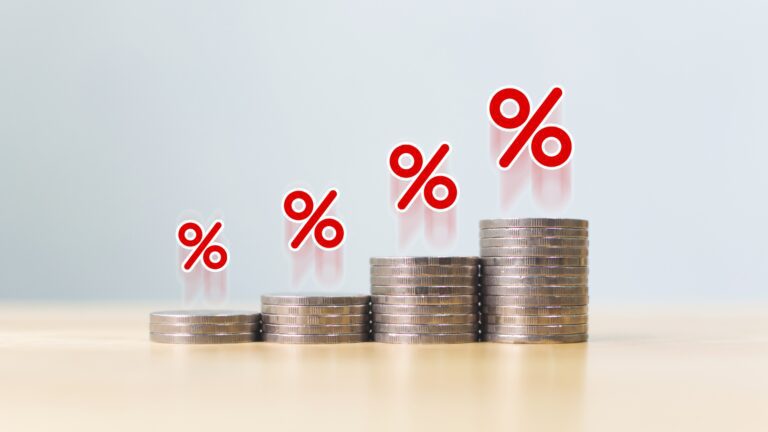This blog post contains some of the essential personal finance terms you should know to grow financially. You will surely encounter these terms in your journey to achieving your financial goals.
1. 50/30/20 Rule
This is a popular rule of thumb in personal finance and budgeting where you allocate your income into three categories: 50% to “needs,” 30% to “wants,” and 20% to “savings/investments.” The 50/30/20 rule is an easy budgeting method that can help you to manage your money effectively, simply, and sustainably.
2. Annual Percentage Yield (APY)
This is the rate of return you earn over a year on savings or investments.
3. Assets
An asset is something containing economic value and future benefit. An asset generates cash flow or income.
>> RELATED: 9 Best Income-Generating Assets That Will Make You Rich
4. Bankruptcy
It is a legal process where you’re declared unable to pay your debts.
5. Budget
A budget is can be simply explained as the estimation of income and expenses over a specified period and is usually re-evaluated from time to time.
>> RELATED: How To Create A Budget & Stick To It
6. Capital Gains
This is the profit earned on the sale of an asset that has increased in value over the holding period.
7. Cash Back
This is a kind of benefit that returns a small percentage of cashback to your account from the money you spend using the card.
8. Compound Interest
This is the addition of interest to the principal sum of a loan or deposit. Compound interest is also referred to as interest on principal plus interest.
9. Credit Score
This is a number between 300 and 850 that represents your creditworthiness, which is obtained by considering factors like payment history, credit mix, and the total amount you owe.
10. Cryptocurrency
This is a form of currency that exists digitally and uses cryptography to secure transactions.
>> RELATED: 9 Ways To Make Money With Crypto On Binance
11. Dividend
This is a periodic payment made to investors who own stock in a company.
12. Dividend Stock
This is a stock that pays dividends to its investors.
13. Debt
This is referred to as an amount of money owed.
14. Exchange Traded Fund (ETF)
This is a fund that invests in assets such as equities, bonds, and commodities, and allows investors to buy and sell shares of it.
15. Ex-Dividend Date
The date by which you need to be holding stock to receive dividends for that dividend period.
16. Expenses
Your expenses are those things that you spend money on or that take money from you.
>> RELATED: 5 Steps To Track Your Expenses Every Month
17. Emergency Fund
This is an amount of money set aside as a financial safety net to cater for emergency expenses.
18. Fundamental Analysis
This is a type of analysis that examines the fundamentals of an asset or a business such as earnings, cash flow, and financial position to forecast performance. It is also the analysis of a business’s financial statements, competitors, industry, and markets.
19. Growth Stock
Growth stocks are stocks of companies that grow sales and earnings at a faster rate than market competitors.
20. High-Yield Savings Account
This is a type of bank account that offers a higher interest rate than traditional savings accounts. They are mainly used for emergency funds and they pay a yield that’s higher than average, allowing savers to reach their financial goals faster.
21. Interest
This is the amount of money a borrower pays to a lender at a particular rate.
22. Inflation
This is the increase in the prices of goods and services in an economy over a specific period.
23. Index Fund
An index fund is a type of fund designed so that the fund can track some specified investments.
24. Mutual Fund
A mutual fund is a type of fund that pools money from many investors to purchase securities.
25. Net Income
The is the amount an individual or business makes after deducting costs, allowances, taxes, and other expenses.
>> MUST-READ: 8 Easiest Ways To Make Money
26. Net-Worth
This is the total value of your financial assets minus your liabilities, or debts. It can also be defined as the difference between the asset and the liability of an individual or a company.
27. Overdraft
This is the amount of money that the bank allows you to spend beyond the amount you have in your account that you must pay back with interest.
28. Retirement Plan
This is a savings plan in which part of the money that you earn is invested in the plan that serves as a safety net when you retire.
29. Return On Investment (ROI)
This is a measure of the profitability of investment by subtracting the cost of an investment from its current value and then dividing it by the cost.
30. Value Investing
Value investing is the art of buying stocks that trade at a significant discount to their value. It is achieved by looking for companies with cheap valuation metrics.
>> MUST-READ: 14 Ideas To Save More Money Every Month







One Response
Excellent! Keep it up